

EnaTex: Indonesian project partners travel to Germany
The meeting kicked off with the hybrid network meeting on 5 June 2023 at the Niederrhein University in Mönchengladbach with representatives of all project partners as well as the project management agency DLR. The focus was on the development of measures in the area of energy efficiency and renewable energy in the Indonesian textile industry. During the meeting, the partners of Niederrhein University informed about their research activities in the EnaTex project and demonstrated the test facilities for the minimum application and ultrasonic processes in the textile laboratory. These technologies are being further developed in the EnaTex project in cooperation with STTT Bandung and the industrial partners SriTex, Harapan Kurnia, and Brückner.
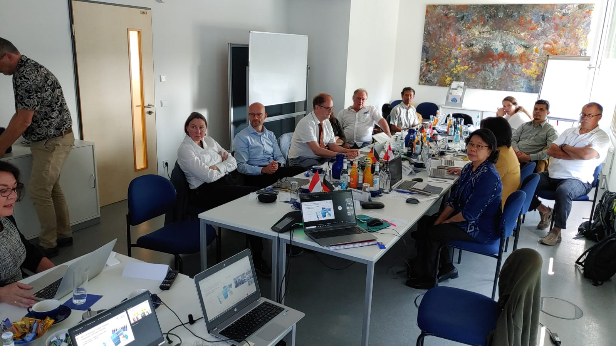
On 6 June 2023, the delegation travelled to the project partner Brückner Trockentechnik GmbH & CO. KG in Leonberg to learn about the company's activities in the field of textile drying and fixation. In the discussion, all participants emphasised the importance of innovations, such as waste heat recovery or the conversion to renewable energies, to advance the defossilisation of the Indonesian textile industry.
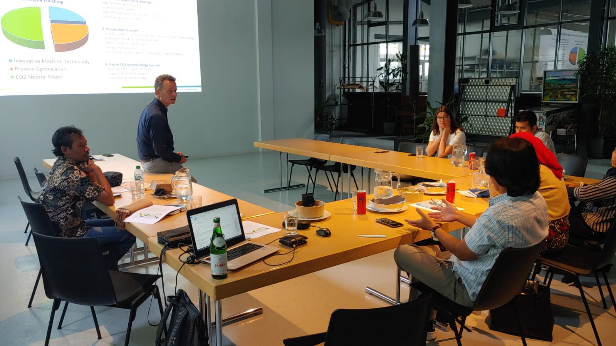
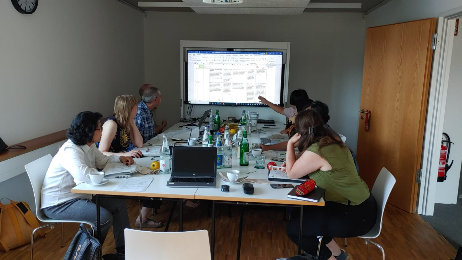
On 7 June 2023 the project meeting ended with the onward travel to the international textile machinery trade fair “ITMA” in Milan. Details can be found in the CLIENT II news.
After having visited ITMA, the partners met for several days of workshops at ifeu in Heidelberg from 12 to 14 June 2023 to discuss the methodology and implementation of the environmental and social life cycle assessment (LCA). The analyses serve to holistically combine the measures developed by the EnaTex team. These measures were compared in terms of their energy, climate, social and environmental impact in the regional context of the Indonesian textile industry. The LCA is a milestone for the identification of effective and sustainable measures, which will be published as EnaTex project results in the context of recommendations, trade publications, conferences and in the teaching context of universities.
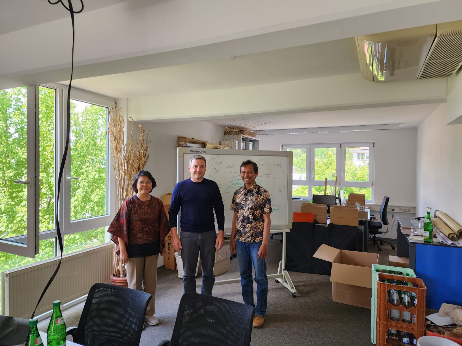
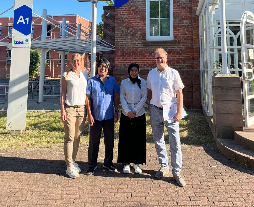
In the course of the networking activities, the project representatives from STTT Bandung and the University of Atma Jaya also visited IZES in Saarbrücken. The exchange at IZES focused primarily on aspects of acceptance research for transformation processes in Germany and Indonesia. Finally, the project partners agreed to continue the exchange, for example through international cooperation programmes.
In parallel to the LCA workshops and the meeting of the Indonesian partners at IZES in Saarbrücken, IZES experts conducted a capacity building training in cooperation with STTT Bandung. The aim of the training was to introduce measurement techniques for measuring the efficiency of textile machines and heat generators for textile process heat in the megawatt range. This heat, which represents about 90 % of the final energy demand in factories, is provided centrally in the form of steam and heated thermal oil, primarily based on domestic lignite. For an evaluation of the status quo and the derivation of optimisation measures, a balance of energy generation, distribution and use is required. Therefore, measurements are to be taken on boilers and textile machines in Indonesia. These measurements will support the local project partners in implementing an energy management system. As a long-term goal, the partners agreed to establish aspects of energy efficiency and balancing in textile production as part of the curriculum in teaching and research and thus to integrate them sustainably into the Indonesian textile industry.
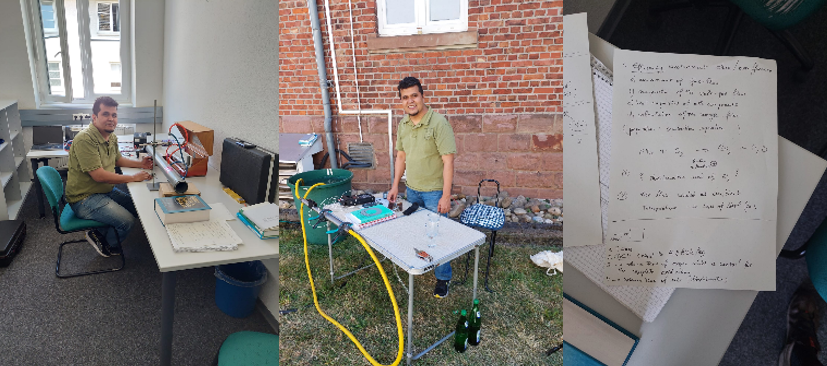
Thanks to the time spent together in Germany, project partners were able to deepen their common understanding of the project and to jointly agree on next steps.
Further information on the project can be found on the CLIENT II project page and at www.enatex.de.
